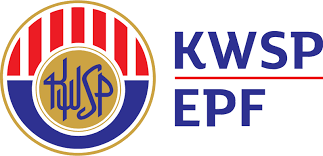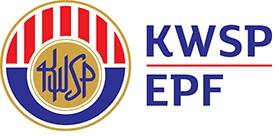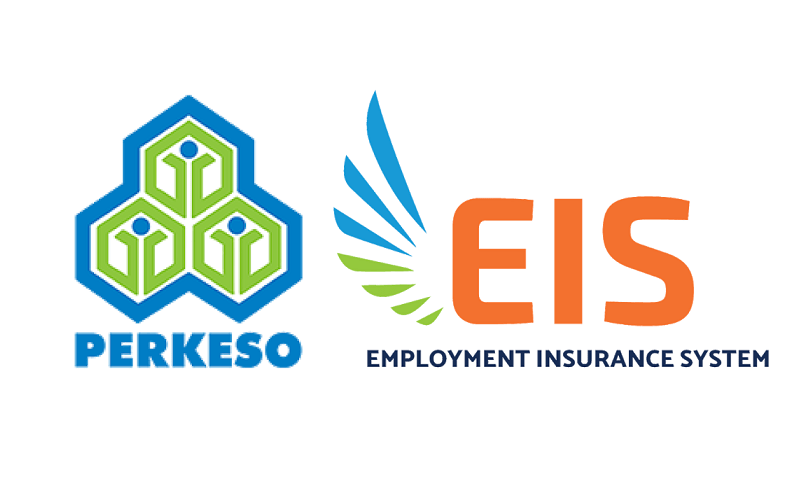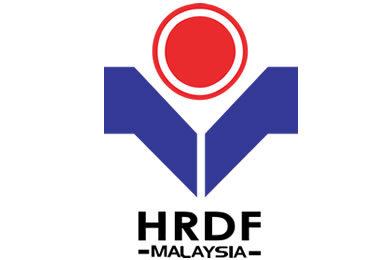
ACT 452
1. EMPLOYEES PROVIDENT FUND ACT 1991
a. If you are wonder can a owner to contribute EPF and his spouse, then look no further on the contribution list: Statutory Contribution for Owner & Spouse.pdf
b. An Act to provide for the law relating to a scheme of savings for employees’ retirement and the management of the savings for the retirement purposes and for matters incidental thereto. EPF contributions at PDF copy: EPF Contributions at Malaysia.pdf
c. Who are liable for EPF, SOCSO and EIS’s Contribution: Full time Malaysian employees (48 hours per week), part-time employees with working hours between 30% to 70% with the Company & Directors for Sdn. Bhd. and Berhad.

2. Payment Liable for EPF Contribution:
In general, all payments which are meant to be wages are accountable in your monthly contribution amount calculation. These include:
a. Wages;
b. Wages in lieu of notice of termination of employment;
c. Payment for un-utilised annual or medical leave;
d. Bonuses;
e. Allowance;
f. Commission;
g. Incentive;
h. Arrears of wages;
i. Wages for maternity leave;
j. Wages for study leave;
k. Wages for half day leave;
l. Arrears of wages arising from salary revision;
m. Other payments under services contract or otherwise.
How calculation works:
Example:
For an employed Malaysian below the age of 55 who earns RM 10,000.00 a month:
– The employee contributes = 11% X RM 10,000.00 = RM 1,100.00 per month
– The employer contributes = 12% X RM 10,000.00 = RM 1,200.00 per month
– Total monthly contribution = RM 2,300.00
Benefits:
a. EPF’s dividends of 4.5 – 6.15% over the past five years are significantly more attractive.
b. EPF is a great way to get someone other than yourself – namely, your employer – to contribute to your retirement.
c EPF contribution is that it qualifies for tax deduction by way of personal relief. Dividends generated from EPF are also exempted from tax.
3. Payments Exempted From EPF Contribution:
a. Service Charges;
b. Overtime Payment;
c. Gratuity;
d. Retirement Benefits;
e. Retrenchment, temporary and lay-off;
f. Any travelling allowances or the value of any travelling concession;
g. Directors’ Fees;
h. Any other remuneration or payments as may be exempted by the Minister.
Remarks:
i. At current, it is mandatory for employed Malaysian citizens to contribute to the EPF. Foreigners working in Malaysia are not obligated to contribute to EPF but may opt to do so. For foreigners, Form KWSP 16B and then registering as an EPF member using Form KWSP 3 and the employer shall obliged to contribute a minimum of RM5.00 per month to a foreigner’s EPF account regardless of how much he earns.
ii. Kindly visit http://www.kwsp.gov.my/ if further information are needed.

For SOCSO (provide social security protections to all employees/workers in Malaysia), the requirements for contribution are as below PERKESO TATACARA PORTAL ASSIST:
SOCSO’s Rate of Contribution: PERKESO JADUAL CARUMAN 27082021
4. Wages subject to SOCSO contribution:
The remuneration or payable to employees are subject to SOCSO contributions:
a. Salary / Wages (full/part time, monthly/hourly) PERKESO Takrifan Gaji (1) 27082021;
b. Overtime payments;
c. Commission;
d. Paid leave (annual, sick and maternity leave, rest day, public holidays);
e. Allowances;
f. Service Charge.
5. Wages NOT subject to SOCSO contribution:
The remuneration or payable to employees are NOT subject to SOCSO contributions:
a. Payments by employer to any pension or provident fund for employees;
b. Mileage claims;
c. Gratuity payment(s) for dismissal or retrenchments;
d. Annual bonus;
Remarks:
i. All companies in Malaysia must register itself with SOCSO within 30 days from the day it starts the employment of employees.
ii. The company will pay 1.75% while the employees to contribute 0.5% of their salary for the Employment Injury Insurance Scheme and the Invalidity Pension Scheme where the rates are depending on the total monthly wages.
iii. You may refer to https://www.perkeso.gov.my/index.php/ms/ if further info are needed.
6. Explanation Regarding Payments Exempted From EPF Contribution:
a. Service Charge;
A service charge is any money or payment either in the form of a service charge, service fee, tips or other payments paid by, charged to, collected from or voluntarily given by customers or other individuals (who are not the employer) with respect to the employer’s business. This payment is made to an employee either in whole or in part, directly or indirectly, and either under the service contract between the employer and the employee or otherwise.
b. Overtime Pay;
Any monies payable by the employer to the employee for work done over the regular working hours of the employee and include any payment due to the employee for work done on public holidays and off days.
c. Gratuity;
Any payment made by the employer to the employee payable at the end of a service period or upon voluntary resignation in acknowledgment of the employee’s service.
d. Retirement Benefits;
Any payment made to the employee due to retirement whether mandatory or voluntary or for health reasons as stated in the employee’s service contract.
e. Staff reduction, lay-off or termination benefits;
Any payment made by the employer to the employee as a result of staff reduction, lay-off or termination exercise.
f. Any travelling allowance or the equivalent of any travel concessions;
Any payment made by the employer to the employee for the purpose of travelling and transport expenses.
g. Payment in lieu of notice of termination of service;
Amount paid by the employer or employee in lieu of a notice of termination of service by:
a. the employer to the employee to terminate his/her services; or
b. the employee to the employer upon resignation.
h. Director’s Remuneration.
Remuneration or fee paid to the director.
7. Person Not Obligated To Contribute:
Persons stipulated in the First Schedule of the EPF Act 1991 who are exempted from making a contribution are as follows:
a. Nomadic aborigines unless recommended in certain cases by the Director-General of the Department of Aborigines;
b. Domestic servants (within employer’s residence) as defined under Section 3 of the Workmen’s Compensation Act 1952 [Act 273], for example maid, cook, house guard, gardener and personal driver EXCEPT when hired:
i. by any employer as stated in the Second Schedule of the Act;
ii. by an association already registered or required to register under any written law currently in force with respect to the registration of associations – or co-operative bodies;
iii. in any business registered or licensed or required to be registered or licensed under the Registration of Businesses Act 1956 [Act 197], Trades Licensing Ordinance for the State of Sabah [Sabah Chapter 144], Business, Profession and Trade Licensing Ordinance for the State of Sarawak [Sarawak Chapter 33], or Business Names Ordinance for the State of Sarawak [Sarawak Chapter 64], as the case may be; or
iv. by corporations incorporated under any written laws.
c. Out-workers (as defined under Section 3 of the Workmen’s Compensation Act 1952 [Act 273] );
d. Persons detained in any prison, Henry Gurney School, detention centre, mental hospital or rehabilitation centre defined under the Drug Dependents (Treatment and Rehabilitation) Act 1983 or leprosarium;
e. Members of the administration (refer to Article 160 of the Federal Constitution);
f. Expatriates whose country of domicile is outside Malaysia (foreign citizens) and who elect not to contribute;
g. Employees who have attained 75 years of age;
Para 3 of the Employment (Part-Time Employees) Regulations 2010:
h. Who is engaged occasionally or on an irregular basis, as and when needed, and whose working hours in 1 week does not exceed 30% of the normal hours of work of a full time employee in 1 week (who is also known as a casual employee), for example; irregular basis waitress or kitchen help at restaurants or sales staff during at retail outlet during festive seasons;
i. Casual workers as such internship and practical students in doing an internship with the company.

8. Employment Insurance System
a. EIS aims to provide Employment Insurance, Public Employment Services, and Labor Market Information (LMI) to the Malaysian workforce.
b. The contribution rate for Employment Insurance System (EIS) is 0.2% for the employer and 0.2% for employee based on the employee’s monthly salary.
c. The Contribution rate is based on Section 18 and Schedule 2 of the Employment Insurance System Act 2017. All employers in the private sector whose employees are covered under the Act are required to pay contributions on behalf of their employees. (Exempted for Federal and State Government permanent employees, Domestic servant and self-employed)
d. Contribution background: https://www.perkeso.gov.my/index.php/en/eis-registration-contribution/eis-contribution-rate

9. Payment Liable for HRDF Contributions HC-HRDF-Standard Requirements.pdf:
9a. Before that, the HRDF contribution will be fixed basic salary (before deductions) + fixed monthly allowance which including:
a. Fixed allowance;
b. Entertainment allowance;
c. Long service allowance;
d. Machine & maintenance shift allowance;
e. Skill allowance;
f. Cost of living allowance;
g. Housing allowance;
h. Out of state allowance;
i. Dangerous working condition allowance;
9b. HRDF will EXCLUDE non fixed allowance:
a. Attendance allowance;
b. Production target allowance;
c. Shift allowance;
d. Trip allowance;
e. OT payments;
f. Meal allowance;
g. Special duty allowance.
9c. Salary EXEMPTED from HRDF Contribution:
a. Funds in contribution to employee’s benefits or welfare (EPF, retrenchment, termination & retirement);
b. Travelling allowance;
c. Extraordinary expenses claim;
d. Gratuity on retirement;
e. Yearly bonus;
f. Internship/ Apprenticeship allowance under contract works.
Remark:
Registration link : https://hrdcorp.gov.my/
10. FAQ on Bonus vs Angpow
Q1: Are Bonus and Angpow subject to EPF and PCB?
A1: Bonus subject to EPF with PCB (use e-PCB calculator) and Angpow is not.
Q2.: Bonus and Angpow, are it the same?
A2: Bonus is an performance based reward and will be recorded at payroll (EPF and PCB) while Angpow is a token of happiness during festive season (proof-of-receive through signing of payment voucher) hence it is not an income and not subject to EPF and PCB.
Q3: As an owner, can I assume Bonus is Angpow?
A3: Cannot as Bonus and Angpow are different entities. It is not adviseable as already breaching the EPF’s compliance.
Q4: As an employee, can the Owner changed from Bonus to Angpow?
A4: As an employee, he/ she will be at the losing side as losing of additional EPF’s contribution of 12%-13%.
Q5: Do we have a time frame for Bonus date and amount?
A5: No specific rules and all subject to the Management’s planning.
Q6: When to pay EPF & PCB for Bonus’s payment?
A6: Subsequent month before 15th.
11. FAQs on difference between Foreigner vs Non- Resident
Q1: Do foreigner needs to contribute SOCSO?
A1: Foreigner needs to contribute under Employment Injury Scheme where employer contributions are payable
Q2: Are EPF, EIS & HRDF a must for foreigners?
A2: Foreigners are optional to contribute but they are mandatory to pay Human Resource Development (HRD) Levy while EIS & HRDF are not applicable for foreigners.
Q3: Do foreigners need to pay PCB?
A3: It depend on the employee residence status as it is based on time spent in Malaysia and not nationality; for example if a Malaysian who lives and working at oversea, he is a non-resident.
Exemption will be given if the time spent in Malaysia as follow:
a. 60 days or less in a single year; or
b. a continuous period in not exceeding 60 days that overlaps 2 years; or
c. a continuous or period not exceeding 60 days which is overlaps 2 years along which together continuous period do not exceed 60 days.
Therefore, any income, fees, commission or bonus received will not be taxed at Malaysia but it does not apply to non-resident Directors of Malaysia companies and public entertainers.
Q4: What is a tax rate for non-resident who is working at Malaysia?
A4: Non-resident is being taxed at a flat rate of 30% and not entitled to enjoy tax reliefs by tax residents but able to claim tax exemptions on certain allowances, benefits-in-kind (BIK) and perquisites as like residents while if you are consider a resident, then you will be taxed at graduated rate of 0%- 30% depending on your income and entitled to enjoy tax reliefs which subsequently reducing amount of tax payable.
11. TUGAS DAN TANGGUNGJAWAB MAJIKAN DI BAWAH AKTA KWSP 1991 (The wrong doings and penalties.)
| KESALAHAN DAN PENALTI DI BAWAH AKTA KWSP 1991 | ||
| Seksyen | Kesalahan | Penalti |
| 41(1) | Majikan yang gagal mendaftar dengan Lembaga dalam tempoh 7 hari dari tarikh majikan wajib mencarum. | Penjara tidak melebihi tiga tahun atau denda tidak melebihi RM10,000 atau kedua-duanya sekali. |
| 41(3) | Majikan yang gagal memberitahu Lembaga dalam tempoh 30 hari dari tarikh ia berhenti bertanggung mencarum. | Penjara tidak melebihi enam bulan atau denda tidak melebihi RM2,000 atau kedua-duanya sekali. |
| 42(1) | Majikan yang gagal menyediakan dan memberikan penyata upah kepada pekerjanya. | Penjara tidak melebihi enam bulan atau denda tidak melebihi RM2,000 atau kedua-duanya sekali. |
| 43(2) | Mana-mana majikan yang gagal membayar kepada Lembaga KWSP caruman bagi pihak mana-mana pekerja berkenaan mana-mana bulan dalam tempoh 15 hari terlepas bulan yang caruman itu kena dibayar. | Penjara tidak melebihi tiga tahun atau denda tidak melebihi RM10,000 |
| 47(1) | Mana-mana majikan memotong atau cuba memotong daripada upah atau saraan mana-mana pekerja keseluruhan atau mana-mana bahagian daripada caruman majikan. | Penjara tidak melebihi enam tahun atau denda tidak melebihi RM20,000 atau kedua-duanya sekali. |
| 48(3) | Mana-mana majikan yang memotong caruman pekerja daripada upah pekerja dan gagal membayar jumlah wang yang dipotong itu atau mana-mana bahagiannya kepada KWSP. | Penjara tidak melebihi enam tahun atau denda tidak melebihi RM20,000 atau kedua-duanya sekali. |
References:
a .Laman web KWSP : KWSP Official Website
b. Pusat Pengurusan Perhubungan KWSP: 03-8922 6000. Nombor Fax : 03-89226222 (Fax Cover Note)
c. SOCSO: Perkeso Official Site
d. SOCSO’s contribution: Contribution Rate’s Table.pdf
e. EIS’s contribution : Contribution Rate’s Table.pdf
f. Pejabat-pejabat KWSP yang berhampiran.
